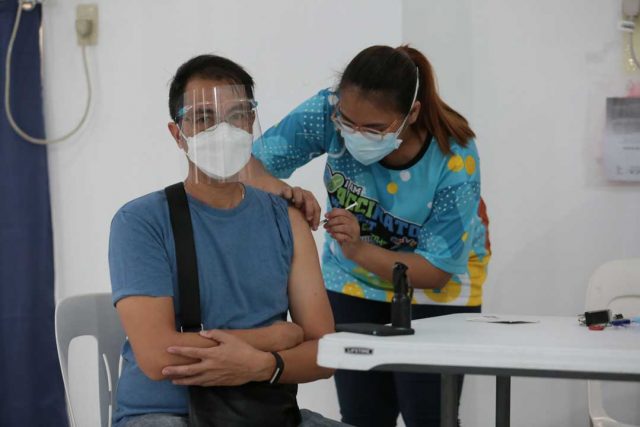
Medicine Cabinet
By Teodoro B. Padilla

The Department of Health (DoH) earlier confirmed the local transmission of Omicron subvariant BA.2.12.1. Cases have been detected in the National Capital Region, Western Visayas Region, and Puerto Princesa City.
This means that local cases have been detected that cannot be epidemiologically linked to cases with significant international travel history.
The most recent evidence indicates that Omicron BA.2.12.1 is highly transmissible due to additional mutations, compared to the original Omicron strain. While this sublineage has so far not been observed to lead to more severe disease or fatality, it has the potential for immune escape, the DoH cautioned.
Should a variant of concern (VOC) enter the country, the DoH warned that expert projections indicate a possible rise and peak in coronavirus disease 2019 (COVID-19) cases, especially with the low booster coverage in the eligible population. As such, the Health department urged all eligible Filipinos to get their booster shot, as immunity is proven to wane over time.
According to the US Centers for Disease Control and Prevention (CDC), COVID-19 vaccine boosters can further enhance or restore protection that might have decreased over time after a person receives his or her primary series vaccination.
People are protected best from severe COVID-19 illness when they stay up to date with their COVID-19 vaccines, which includes getting all recommended boosters when eligible. “It is never too late to get the added protection offered by a COVID-19 booster,” the CDC said.
Since late last year, the DoH has been administering the first and second booster doses to frontline health workers, senior citizens (age 60 and above) and moderately or severely immunocompromised adults.
People are considered to be moderately or severely immunocompromised, or have a weakened immune system, due to several types of conditions and treatments.
These include individuals who have been receiving active cancer treatment for tumors or cancers of the blood; received an organ transplant and are taking medicine to suppress the immune system; received chimeric antigen receptor (CAR)-T-cell therapy (a treatment to help your immune system attach to and kill cancer cells) or received a stem cell transplant (within the last 2 years); have moderate or severe primary immunodeficiency (such as DiGeorge syndrome, Wiskott-Aldrich syndrome); have advanced or untreated HIV infection; and are on active treatment with high-dose corticosteroids or other drugs that may suppress their immune response. Consult your doctor about COVID-19 vaccination and your medical condition.
This June, the DoH announced its plan to administer the first booster (third dose) of a COVID-19 vaccine for all adolescents ages 12–17 years old at least five months after the second dose of the primary series, regardless of the brand of the primary series vaccine.
This follows the vaccination of the immunocompromised from the same population group, which started recently. The DoH and other health expert groups reiterated the importance of improving the coverage of the COVID-19 primary vaccination series and the first booster of all adults.
“The second booster for our health workers and senior citizens will enhance protection given by the first booster and the primary series against all variants, including the recent Omicron subvariant BA.2.12.1. Against whatever variant there is out there, the second booster supports the 4-Door strategy. It fortifies the defense of health workers and highly vulnerable seniors. Everyone eligible can get the second booster jab done at the LGU vaccination sites nearest you. They are safe, effective, and free of charge,” said Health Undersecretary Maria Rosario S. Vergeire.
COVID-19 vaccines work as they lower the chance of getting the virus. They can also protect a person from getting seriously ill and lowers the chance of hospitalization and death from COVID-19. They likewise make a vaccinated person less likely to pass the disease to others.
The DoH called on all Filipinos to stay up to date with their COVID-19 vaccines, including all recommended boosters when eligible, as this helps keep healthcare utilization low and the economy reopening under Alert Level 1.
The research and development and manufacture of COVID-19 vaccines are among the contributions of members of the Pharmaceutical and Healthcare Association of the Philippines to fight this pandemic.
Teodoro B. Padilla is the executive director of Pharmaceutical and Healthcare Association of the Philippines (PHAP), which represents the biopharmaceutical medicines and vaccines industry in the country. Its members are at the forefront of research and development efforts for COVID-19 and other diseases that affect Filipinos.